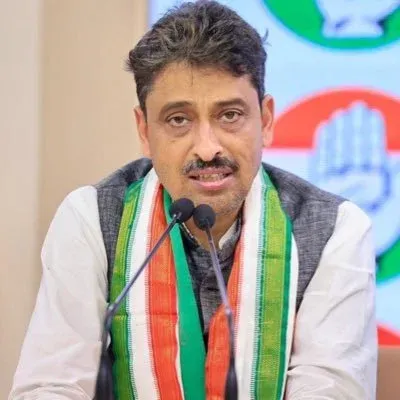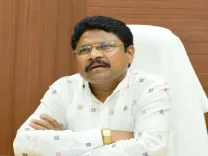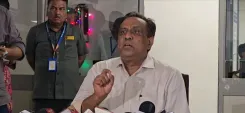Is JD(U) Happy with the National Census Notification While Congress Seeks a Detailed Roadmap?

Synopsis
Key Takeaways
- The 2027 census will include caste enumeration for the first time since 1931.
- JD(U) views this as a victory for social justice, aligning with Nitish Kumar's demands.
- The Congress party emphasizes the need for transparency and detailed execution plans.
- The census will occur in two phases, starting in October 2026.
- This initiative could reshape India’s socio-political landscape.
New Delhi, June 16 (NationPress) Following the Centre's official announcement to carry out India’s 16th population census — which is set to incorporate caste enumeration in 2027 — political responses have started emerging. The Janata Dal (United) has lauded this decision, emphasizing Bihar Chief Minister Nitish Kumar’s persistent advocacy for the cause, while the Congress party has shown cautious optimism, insisting on a detailed execution plan, clear timelines, and budgetary allocations.
Bihar’s Rural Works Development Minister Ashok Choudhary celebrated the announcement as a “historic moment” for social equity. He remarked, “This is a positive step. Figures like Periyar Lalai Singh Yadav and Nitish Kumar have championed this issue for decades. Around 15 to 20 years ago, Nitish Kumar advocated for a caste census in Parliament, and now the Government of India has made that demand a reality,” Choudhary conveyed to IANS.
He continued, “We express our gratitude to both Prime Minister Narendra Modi and Chief Minister Nitish Kumar. This initiative addresses the long-neglected aspirations of Dr. Ambedkar — highlighting the segments of society that have remained socially, politically, and economically marginalized even after 75 years of Independence. The caste census will inform future policies at both Central and state levels, ensuring equitable representation and improved resource distribution.”
Conversely, the Congress party has approached the development with skepticism, urging the Union government to provide more than mere announcements.
Congress MP Saptagiri Ulaka noted, “The government appears to have acted under pressure. We seek more than just proclamations; we require timelines, a definitive budget allocation, and transparency regarding the model to be implemented. A national meeting led by the Prime Minister should be organized with representatives from all parties to thoroughly discuss and finalize the framework.”
Congress MP Imran Masood echoed this perspective, stating, “If the caste census follows a model akin to Telangana’s — detailed, scientific, and inclusive — it would be advantageous. However, if it is based on Bihar’s approach, we lack confidence in its effectiveness. We urge the Centre to present a clear structure, and we will evaluate it accordingly.”
Meanwhile, as per the notification from the Union Ministry of Home Affairs released on Monday, this nationwide initiative will unfold in two phases, encompassing comprehensive data collection, including caste-related information.
The first phase is set to commence on October 1, 2026, covering the Union Territories of Jammu & Kashmir and Ladakh, along with the mountainous states of Himachal Pradesh and Uttarakhand.
The second phase is scheduled to begin on March 1, 2027.
The notification, issued under Section 3 of the Census Act of 1948, states: “A census of the population shall be undertaken during the year 2027. The reference date for the said Census shall be 00:00 hours of March 1, 2027, except for the Union Territory of Ladakh and snow-bound non-synchronous areas of Jammu & Kashmir, Himachal Pradesh, and Uttarakhand.”
This forthcoming Census will be the first in India to include extensive caste enumeration since 1931, potentially altering the socio-political landscape of the country.





